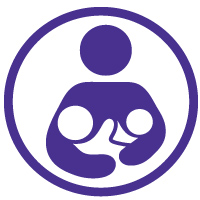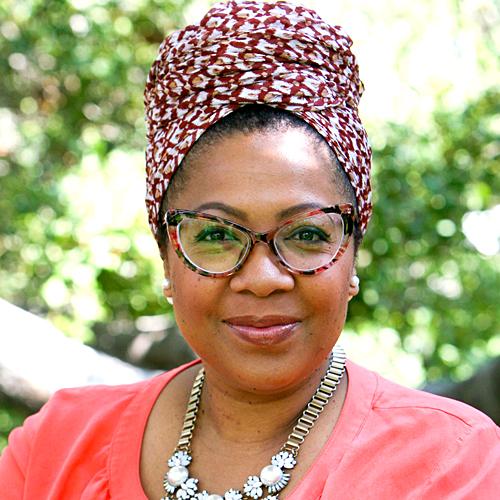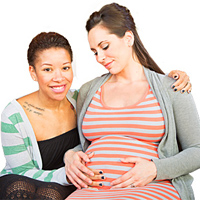 IBCLC Detailed Content Outline: Clinical Skills Focused CERPs - Section VII
IBCLC Detailed Content Outline: Clinical Skills Focused CERPs - Section VII
Access CERPs on Clinical Skills for the IBCLC Detailed Content Outline recertification requirements. Enjoy convenient on-demand viewing of the latest Clinical Skills focused IBCLC CERPs at your own pace.
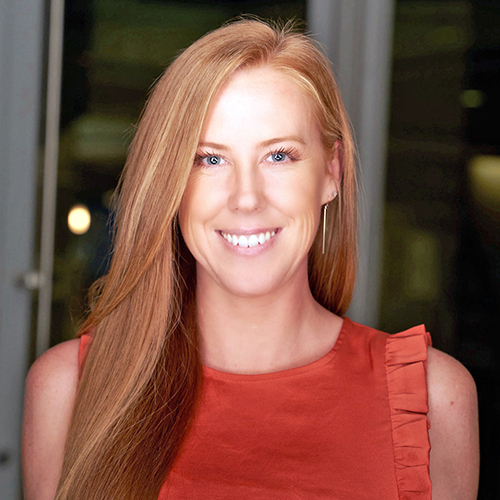
Beyond Breastfeeding: The Long Term Implications of Tongue-Tie in Our Adult Patients

Sarah Hornsby is a registered dental hygienist, orofacial myofunctional therapist, speaker, mentor, and entrepreneur. She’s the founder and creator of MyoMentor, a comprehensive mentorship and online educational platform for myofunctional therapy with over 900 graduates as of August 2022. She’s passionate about merging technology into patient care and has been a pioneer in utilizing telehealth practices in the field of myofunctional therapy since 2014. Sarah is a provider advocate as much as she is an advocate for her patients. Her goal is to empower hygienists and dentists to elevate the standards of care by helping their patients through healthy breathing, airway dentistry, myofunctional therapy, and multi-disciplinary collaboration. She opened Faceology, her private myofunctional therapy practice, in 2010 and today it is a thriving telehealth speciality clinic with a focus on adult patient populations and complex treatment cases. Although Sarah has been a myofunctional therapist for over 10 years, it was actually her own health journey that led her down the path to help her patients.
When it comes to addressing tongue-ties in medicine and dentistry, there is a large emphasis on treating infants in order to achieve optimal breastfeeding. But what happens to the babies who grow into children and adults without addressing their tethered oral tissues, and they end up as adults with tongue-ties? This presentation will discuss the challenges and symptoms that tongue-tied adults face later in life due to restricted lingual frenums. Knowledge of long-term implications is an important part of clinical teaching when explaining tongue-tie to caregivers or colleagues.
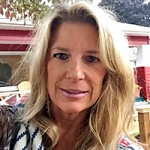

Dr. Rice has been working at the intersection of education and health for social justice and public good. She is the former Executive Director of the Breastfeeding Coalition of Oregon. Currently, Dr. Rice works on organizational development, communication, marketing, public policy and community engagement to advance health equity through access to donor human milk. A national thought leader, she is deeply engaged in convening conversations about the importance of maintaining women’s biological integrity, advancing feminist approaches to human milk banking and at the same time, encouraging capacity building for human milk derived therapies improving health outcomes for the most vulnerable babies.
Most recently Dr. Rice provided consulting as a Policy Associate with Mothers' Milk Bank of San Jose and has provided strategy and policy consulting for the Human Milk Banking Association of North America (HMBANA). Marion holds a doctorate in Education Leadership and is an Internationally Board Certified Lactation Consultant, IBCLC.
This session will look at how for profit corporations are seeking to aggregate, control and exploit human milk. In the absence of federal health policy and consumer regulation/protection, companies are emerging seeking to build commercial markets for human milk often under the guise of improving the economic status of women and infant health.
We will examine companies currently paying for milk both domestically and internationally and the implications for women and emerging policy both at the federal and state level.
Entities setting a price for human milk in the absence of supportive public policy may in fact undermine women’s biological integrity, infant health and contribute to the vulnerability of women and babies.
I will ask participants to consider the issues and to support models of community engagement and decision making that are women centered and women led that keep this biologically critical substance within the community from where it comes; supporting breastfeeding and benefiting women and babies.
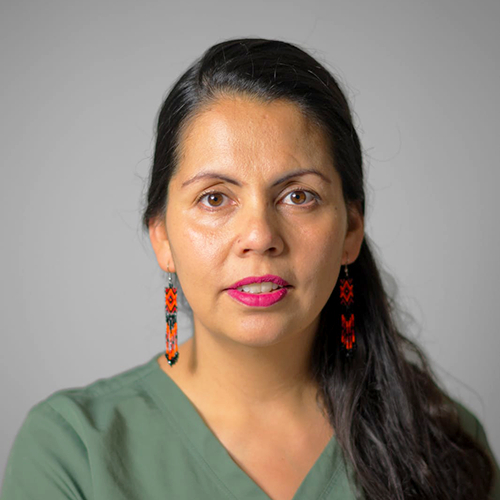
Birth at the Border: A Case Study of Refugees and Migrants at the Tijuana-San Diego Border

CNM Ximena Rojas Garcia is a Midwife and licensed Obstetric Nurse from the National Autonomous University of Mexico, she comes from a line of traditional midwives. Ximena has 15 years of experience in her field and as a Midwifery Professor, she has certifications in Obstetrical Emergencies, Neonatal Resuscitation, Water birthing and Acupuncture. Ximena founded "Partería y Medicinas Ancestrales," the only Mexican Midwifery NGO that includes Midwives from all paths and programs, which was instrumental in providing maternal health access during the humanitarian crisis after the arrival of thousands of asylum seekers from Haiti, Congo and Central America to the US-Mexico border.
Ximena has been collaborating with Stanford University's Obstetricians, Gynecologists and Pediatricians to train Midwives and Health providers at the US San Diego-Tijuana border to improve birth outcomes. She organizes direct relief to support trauma recovery responding to crises and disasters as a member of Acupuncturists Without Borders. Ximena also created a Doula training program, responsible for training more than 300 Doulas in Mexico, Colombia and Guatemala, aimed at eradicating obstetric violence, lowering the frequency of unnecessary c-sections, and decreasing maternal and newborn mortality.
Ximena is one of the founders and co-directors of Refugee Health Alliance and currently practices clinically at Justicia en Salud RHA Sexual & reproductive health free clinic. She established the first free birth center in Baja California, Mexico that serves vulnerable populations including displaced migrants, asylum seekers, deportees, sexual assault survivors, black, brown and indigenous families who historically had faced forced sterilizations, higher maternal death and newborn death. Her philosophy of birth is: Birth is a unique experience like a ceremony that heals trauma and the next generations when we hold space for it to happen.
Over the past years, Tijuana, Mexico, has seen an influx of U.S.-bound refugees and migrants, many of whom have escaped incredibly difficult situations in their country of origin. With no or little access to healthcare, pregnant women and girls are often most vulnerable.
Parteras Fronterizas / Borderland Midwives caters to the unique needs of this underserved patient population by utilizing a holistic approach that combines midwifery, traditional and Western medical practices.
This presentation explores the unique challenges pregnant migrants and refugees face at the US/Mexico border.
It highlights the importance of the midwifery model of care and dives into how midwives and healthcare providers can provide compassionate, trauma informed and comprehensive care despite difficult and limiting circumstances. The presentation will also discuss global health and midwifery skills that can help dismantle health disparities.
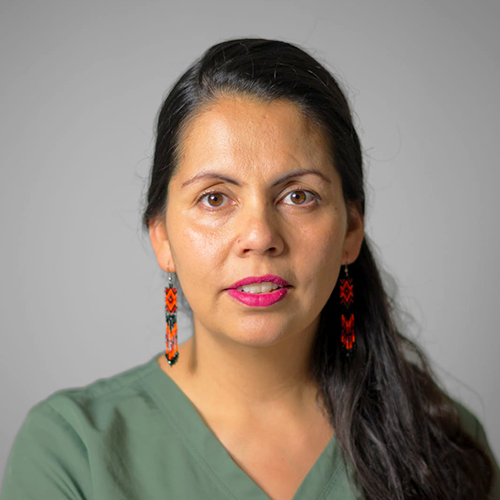
View Details / Enroll
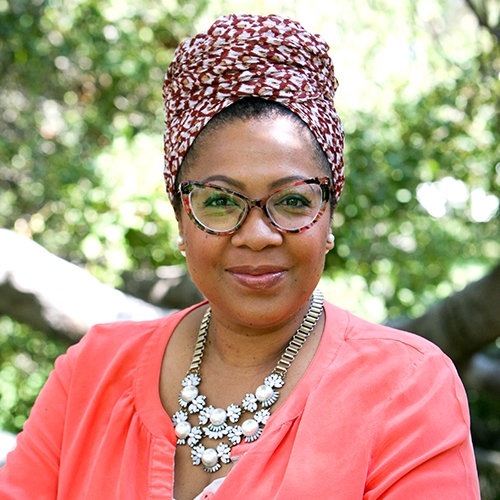

Nekisha Killings is an equity strategist, internationally board-certified lactation consultant, and maternal and child health advocate who speaks, teaches, and facilitates on topics related to equity and dismantling bias across various sectors.
When she is not home educating 4 future world changers, she acts as a Director of Equity, Inclusion and Belonging at Lactation Education Resources and consults organizations on creating and implementing strategies to better support marginalized communities.
Nekisha holds a Masters in Public Health and penned the chapter titled Cultural Humility in the latest Core Curriculum for Interdisciplinary Lactation Support text. Nekisha is on a mission to normalize brown breasts and nipples in health education, thereby better equipping healthcare providers to accurately assess and treat people of color.
Nekisha's work is rooted in a compassion and candor that could only have been cultivated in years of supporting new parents during their first days of parenthood. Nekisha is an active duty military spouse who has been awarded the Spouse of the Year designation for her volunteer efforts supporting families.
Topic: Breast Assessment and Non-White Skin Tones - [View Abstract]
Topic: BreastSide Manner: A Patient-Centered Approach to Lactation Support - [View Abstract]
Topic: Marching Orders: Developing Practical and Impactful Care Plans - [View Abstract]
Is a red spot always a key indicator of mastitis? What about the deep purple trademark of vasospasm? How does eczema present on non-white skin? Performing a standard breast assessment may cause clinicians to overlook or misidentify key indicators of maladies in patients that are not fair skinned. Learn how you can improve your assessments and familiarize yourself with other ways to identify common conditions in patients populations that may not have been featured in your textbooks.
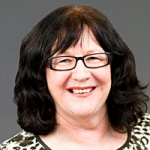
Breastfeeding - what we need to know as Birth Workers

Geraldine has been involved in breastfeeding support and education for 30 years in Ireland. She works in private practice as a Lactation Consultant doing home visits. She has a major interest in Adult Education and she runs Training of Trainer (Lactation) courses for healthcare professionals in Ireland. She tutors for a group called Cuidiú, training both breastfeeding counselors and childbirth educators.She has organized Peer to peer education for other groups in Ireland and abroad. Geraldine has spoken at many conferences both in Ireland and abroad or a range of topics but her choice usually comes back to her interest in Adult education and the theories around learning styles, groupwork, experiential learning and programme development.
Topic: Learning styles – Certainly Not a One Size Fits All - [View Abstract]
Birth workers are usually the first contact with parents and are therefore the people who are best placed to influence them in their choice of infant feeding method. Adults only retain information on a ‘need to know’ basis, so meeting the needs of individuals in your interactions is important. Whether you provide a formal breastfeeding class or just have 5 mins to chat during a prenatal visit, what is the best way for you to provide evidence, which information is important. How can you help parents to make an informed decision about feeding. Adult education theory, learning styles, aims and learning outcomes for your interactions, as well as breastfeeding information will be presented and ideas for how you can make your clients learning fun and interactive.
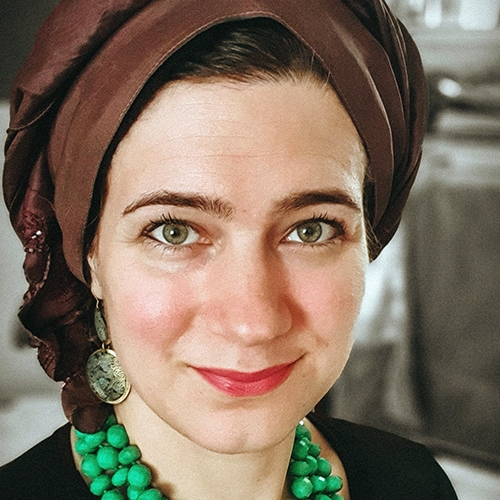
Breastfeeding / Nursing Aversion and Agitation (BAA) in breastfeeding mothers

Zainab Yate is a Biomedical Ethicist, with a specialist interest in infant feeding. Zainab is Vice Chair and named qualitative lead on a paediatric flagged Research Ethics Committee Panel for the Health Research Authority (HRA) in the UK, reviewing research protocols for over a decade. Zainab's previous working background is in Public Health and Commissioning the National Health Service (NHS) in the UK. She had also been a volunteer breastfeeding peer supporter with the NHS for a number of years, is the owner-author of the resource site for mothers and healthcare practitioners on Breastfeeding / Nursing Aversion and Agitation and author of "When Breastfeeding Sucks".
Topic: Breastfeeding / Nursing Aversion and Agitation (BAA) in breastfeeding mothers - [View Abstract]
Topic: Research Ethics & Infant Feeding: How to Utilise the Four 'D's of a Brief Assessment - [View Abstract]
Aversion to breastfeeding or agitation while breastfeeding is known to occur in some women who breastfeed while pregnant, or who tandem feed a newborn and a toddler. However, it is a little researched area, and the paucity of published literature around breastfeeding aversion and agitation reveals a significant gap in the literature. My presentation presents the findings of an exploratory online survey that sheds light on what appears to be a commonly experienced phenomenon of aversion and agitation whilst breastfeeding, which varies in form, severity and duration. BAA is characterised by feelings of anger or rage, a skin crawling sensation and an urge to remove the suckling infant, but can also be feelings of agitation and irritability whilst the infant is latched. Mothers who experience BAA still continue to breastfeed, but have feelings of guilt and shame about BAA and are often confused about having feelings of BAA. Research is needed to understand the reasons for BAA, its causes, triggers and strategies to minimize the experience in breastfeeding mothers.

View Details / Enroll
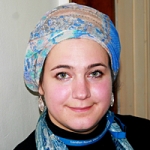
View Details / Enroll


Paulina is the mother of three multicultural Latino children and Project Director for Lifespan Local. Paulina earned her BS in Psychology from the Pennsylvania State University, a MS in Organizational leadership from the University of Denver and is completing her PhD in Health and Behavioral Sciences at the University of Colorado - Denver. Paulina has over 18 years of experience working with families with young children. As a Maternal Child Health specialist for Jefferson County Public Health, she developed a NICU follow-up home visitation program and the pediatric emergency preparedness plan, co-founded and coordinated the Conectando Network (former Adelante Jeffco), established community navigation and lactation support groups focused on the Latino Spanish speaking community, and lead other initiatives to support leadership and partnerships among communities and organizations. During the COVID-19 pandemic, she managed the new program Whole Community Inclusion to ensure the pandemic response and recovery implementation included health equity practices that recognize the needs and the strengths of priority populations in the county. Her areas of current work include promoting perinatal and infant mental health along the continuum of care; building community capacity to navigate health and education systems; facilitating organizational change to embrace linguistic and culturally responsive practices; and establishing community-placed participatory programs to strengthen communities. She likes to be with people, learn from and with others, and connect passions for meaningful work.
Topic: From the NICU to the home: mother’s experiences - [View Abstract]
Topic: Leadership Skills in Lactation: Make Extraordinary Things Happen - [View Abstract]
Topic: Liderazgo en Lactancia - Para Alcanzar Metas Extraordinarias - [View Abstract]
Topic: Nursing A Preemie, Perspectives For Lactation Supporters and Professionals - [View Abstract]
Breast/chest feeding is a biological, emotional, and social process. There is an undeniable link between human
milk and behaviors associated with feeding. Breast or chest feeding provide the perfect environment for babies’
development, such as bonding, attachment, mutual regulation, security, etc. But what happens when parents
can’t access effective, culturally competent, compassionate lactation services? What happens when over
generations lactation support has been lacking?
Every parent deserves the chance to meet their feeding goals and enjoy the short and long term benefits of
human milk feeding. Social inequities augment the effects of not experiencing those benefits making it even
harder for parents and babies to have their physical, emotional and social needs met. Outcomes of lactation
impact the dyad, the family, the community beyond the nutritional needs of the infant.
Advocacy efforts at local, regional and national levels create meaningful opportunities for health equity, so
those with no power or resources can reach optimal health. Lactation consultants are in a unique position to
advocate and partner with others to support policies and programs that focus on equity as a systems approach
to benefit marginalized communities and impact their physical and mental health in the long-term.

View Details / Enroll
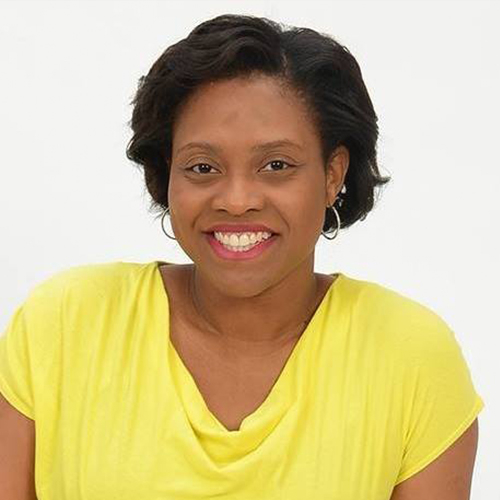
Breastfeeding After Release: The Importance of Anticipatory Care

Karese, like many parents, suffered in silence while her children struggled with the symptoms of undiagnosed sleep and breathing issues. One visit to a pediatric dentist changed the trajectory of their lives. Already a Registered Dental Hygienist (RDH), Karese, trained with Sandra Holtzman, Lois Laynee and Sarah Hornsby to establish her orofacial myology knowledge. With this initial training and numerous others, in a few short years she has not only resolved all her children's issues, but helped hundreds of patients, children and adults alike, discover how great life can be functioning on full. Her private practice, The Myo Spot is now a leader in the quest for myofunctional therapy awareness and public education. Her latest published book, Accomplished, delves into how to sleep better, eliminate burnout, and execute goals. Karese's mission is to transform and positively impact as many households as possible through dynamic breath, brain and body work.
Anticipatory care plays an essential role in achieving desirable outcomes after the revision of tethered oral tissues. Tethered oral tissues are a common and underdiagnosed problem that impacts potentially 10% of the United States population. Lack of a universally accepted approach to diagnosis, treatment, and management creates confusion for the public and prohibits optimal care. This lecture dissects current research, trends, and information to present a deeper connection between oral function and anatomy during breastfeeding and tethered oral tissue revision management. Discover the interdisciplinary approach to restoring a functional and healthy breastfeeding relationship to the dyad and the critical importance of setting families up for success by providing adequate anticipatory care and guidance prior to revision.
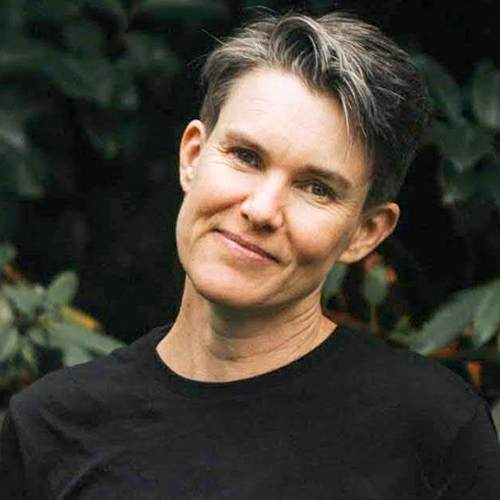
Breastfeeding and Chestfeeding With an Oral Cleft: Scaffolding for Success

Aiden Farrow is an IBCLC, writer, speaker, and infant feeding and health equity advocate. Parent of a child born with a cleft lip and palate, they have advocated extensively over the last 16 years in order to increase awareness of the specific challenges faced by cleft affected infants and their families and to increase adequate lactation support for this community. Based in Victoria BC, Aiden has a private practice entirely focused on babies with oral clefts, providing support internationally via telehealth. Aiden serves on the editorial review board of the Journal of Human Lactation and co-authored the journal’s policy on sex and gender inclusion. Aiden works with Indigenous families as a family support worker and lactation and infant feeding consultant at the Victoria Native Friendship Centre and has a special interest in food security and food sovereignty for infants and toddlers.
When a baby is born with a cleft lip, cleft palate, or cleft lip and palate, how the infant will be fed is an immediate and compelling issue to resolve. Once the baby is feeding competently at the breast or with a bottle, the family may receive little to no feeding support between the early weeks after birth until the recovery period following lip or palate surgery. While full breastfeeding (directly at the breast, without compensations or devices) is theoretically possible once the lip and palate are repaired, some babies have difficulty returning to direct breastfeeding or chestfeeding, and babies who have never been breastfed or chestfed, lack the oral skills to do so. In this presentation, I will discuss what “scaffolding for success” means in the context of breastfeeding and chestfeeding with an oral cleft. I will cover how to counsel parents at each significant stage of the baby’s cleft care timeline, how to support a parent’s unique feeding goals, how to break down a feeding goal into smaller, achievable steps, techniques for supporting at the breast feeding for babies with unrepaired clefts, best practices for achieving a full milk production, mixed feeding, feeding tools, and how to support developmentally appropriate feeding skills before and after cleft repair surgery.
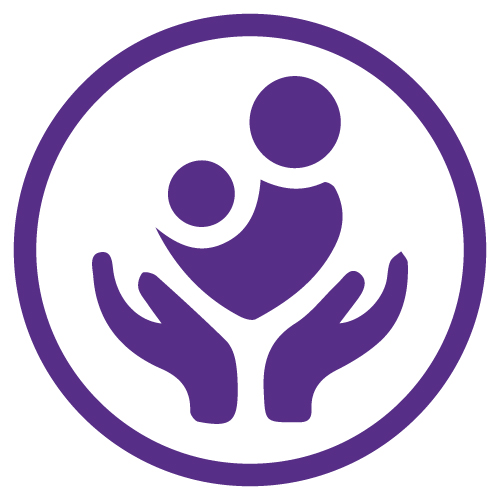
View Details / Enroll
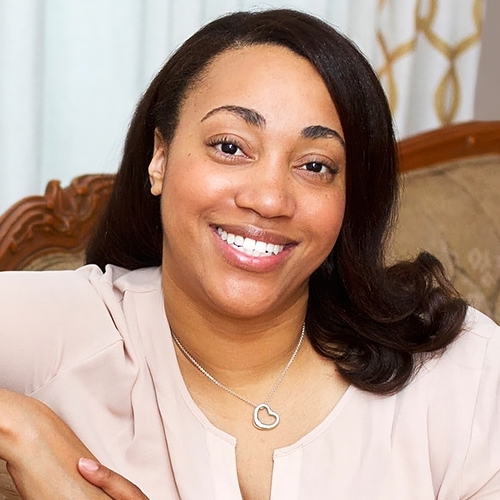
Breastfeeding as a Preventative Care Change Model: How to Affect Change

Mona Liza Hamlin, MSN, RN, IBCLC is the nurse manager of Perinatal Resources and Community Programs for the Women & Children’s Service Line at Christiana Care Hospital in Newark, Delaware. Her role consists of improving both inpatient and outpatient programs that focus on reaching the triple AIM, and improving health equity in the state of Delaware. Hamlin serves as Past-Chair to the United States Breastfeeding Committee (USBC). The USBC is a coalition of more than 50 organizations that support its mission to drive collaborative efforts for policy and practices that create a landscape of breastfeeding support across the United States.
She is a founding member of the National Association of Professional & Peer Lactation Supporters of Color (NAPPLSC), an organization aimed at addressing breastfeeding disparities and improving breastfeeding
amongst families of color. Hamlin also serves as a member of the Delaware Healthy Mother & Infant Consortium and is a board member
for the Breastfeeding Coalition of Delaware. Her fundamental
belief is that equitable access and high quality care are provided to all women and families, especially those most vulnerable to lack of access and systemic barriers to care. Fueled by her professional and personal experiences and passions, Hamlin strives to ensure that all mothers have access to a full scope of perinatal care, support and resources.
No matter where we look health disparities, morbidity and mortality continue to persist. This is especially true in the maternal child health field. We all understand the value of breastfeeding and human milk and it is now critical to merge that value across the spectrum of maternal child health. No matter the organization or work we are in; clinical, community, public health, or policy; we must create connections that improve and create holistic approaches to improve health and prevent illness. Linking breastfeeding and human milk in efforts made outside of the field of lactation will improve overall efforts to improve maternal child health. This discussion will give opportunity to explore how to engage with non traditional stakeholders and make the connections where breastfeeding isn't traditionally included to discuss preventative care for maternal child health as a whole.

View Details / Enroll



